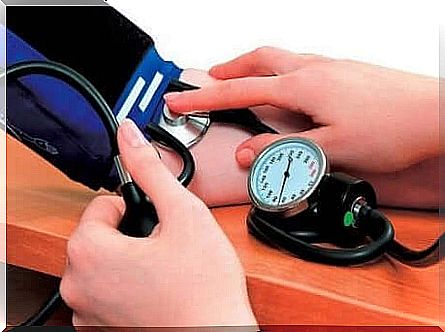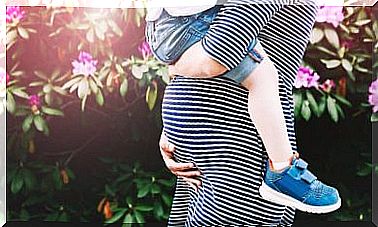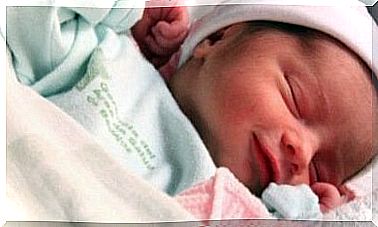What Are The Causes Of Postpartum Preeclampsia?

Postpartum preeclampsia is one of the most delicate medical conditions a woman can experience. Although it is not common, it is important to take the right preventive measures.
In addition, women need to know how to recognize the symptoms of postpartum preeclampsia so that they can receive the appropriate treatment as soon as possible.
Symptoms can appear immediately after delivery and can last for one to three months.
To begin with, we must define postpartum preeclampsia as a condition where high blood pressure is present. This can also happen during pregnancy, in other words, prior to delivery.
It is important to clarify that this condition requires immediate treatment to avoid the risk of cardiovascular complications. By these complications we mean damage to the blood vessels and veins, as well as long-term heart disease.
Signs and Symptoms of Preeclampsia After Childbirth
- Suddenly the arterial pressure rises. By high blood pressure, we mean readings that are equal to or greater than 140/90.
- Too high a protein concentration in the urine (more than 300 mg).
- Sudden and temporary loss of vision. Women may also experience sensitivity to light, weakness, fatigue, and altered states of consciousness.
- Sudden and noticeable weight gain. For example, half to one kilogram per week, despite following a healthy diet.
- Nausea and vomiting may also be present.
- Swelling of the limbs and face.
- Stomach or abdominal pain.
- Painful breathing.

Causes of Postpartum Preeclampsia
Doctors and scientists are still not sure what the definitive cause of this condition is. The best explanation, however, is that postpartum preeclampsia occurs in women who already suffer from preeclampsia during pregnancy – even without knowing it.
Another factor that may be related to the occurrence of preeclampsia after childbirth is a family history of the same medical condition.
Other risk factors include:
- An increase in blood pressure after the 20th week of pregnancy.
- Pregnancy occurring in women under 20 years of age or over 40 years of age.
- Obesity or overweight.
- Multiple pregnancies.
Complications and Risk Factors
- This condition has symptoms similar to those of preeclampsia. The big difference is that it can cause seizures and permanent damage to vital organs such as the brain and kidneys. In the worst cases, postpartum preeclampsia can be fatal or lead to a comatose state.
- This condition consists of the simultaneous occurrence of two conditions: venous thrombosis and pulmonary embolism. When this condition occurs, individuals have difficulty breathing, chest pain, fever and have difficulty getting through the day.
- Pulmonary edema. This is a disease that drastically affects the respiratory tract. It consists of the accumulation of fluids inside the tissues and cavities of the lungs. It is identified by coughing up blood, anxiety, excessive sweating, and difficulty breathing in and out.
Diagnosis and Treatment of Postpartum Preeclampsia
- Blood Tests. Blood tests show whether the liver and kidneys are functioning normally. They also show whether a woman has a healthy platelet count. These cells regulate blood circulation and can save a person’s life in the event of bleeding.
- Urine Tests. This type of test indicates the protein concentration in a woman’s urine. At a concentration of more than 300 mg, there is a deviation.

When it comes to treating preeclampsia after childbirth, it is important to point out that it generally requires the use of medications. Treatment should be aimed at avoiding convulsions, lowering blood pressure and normalizing urine composition.
Now you know how to identify the symptoms of preeclampsia after childbirth and the consequences of ignoring it. Women’s bodies are more fragile after childbirth, so it is very important that we pay attention to what our body is telling us.
Your health should be a priority so that you can take care of your child and your family.








